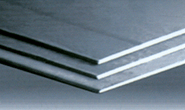Government/Policy

March 8, 2021
Commerce Continues Duties on Plate from China, Russia, Ukraine
Written by Michael Cowden
The U.S Department of Commerce has decided to continue antidumping duties on cut-to-length plate imported from China, Russia and Ukraine as part of the “sunset review” process.
China will remain subject to dumping margins of up to 128.59%, Russia to dumping margins of as much as 185% and Ukraine to margins of up to 237.91%, according to notices published in the Federal Register on Monday, March 8.
![]() “Commerce determines that the revocation of the (duty) order would likely lead to continuation or recurrence of dumping,” the department said in the FR entries.
“Commerce determines that the revocation of the (duty) order would likely lead to continuation or recurrence of dumping,” the department said in the FR entries.
Commerce is required to review antidumping and countervailing duty orders at least every five years to determine whether revoking the orders would result in renewed dumping. That review–also referred to as a sunset review–applies to any antidumping or countervailing duties orders issued since Jan. 1, 1995, according to the U.S. International Trade Commission.
The Commerce Department launched an antidumping investigation into plate imports from Ukraine in December 1996. The department published final dumping margins on Chinese plate in January 1998, per agency records.
Domestic plate producers ArcelorMittal USA (now part of Cleveland-Cliffs), JSW Steel USA, Nucor and SSAB participated in the most recent review processes, Commerce said.
The U.S. imported only 286.7 metric tonnes of cut-to-length plate from China last year. No plate was imported from Ukraine in 2020. And no plate has been imported from Russia since 2017, per Commerce records.
Steel Market Update’s average plate price stood at $1,095 per ton ($54.75/cwt) when this article was filed, up 7.9% from $1,015 per ton in early February and up 25.1% from $875 per ton at the beginning of the year.
By Michael Cowden, Michael@SteelMarketUpdate.com







